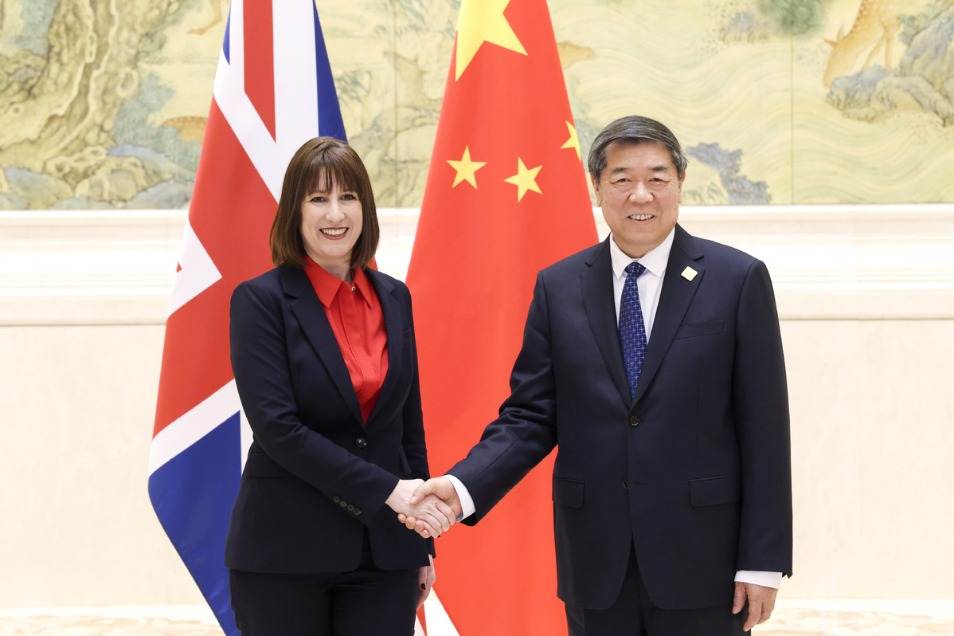Wanted, vaccines and more


Global economy needs more than a shot in the arm as efforts are needed to address the long-term consequences of the pandemic
Countries' economic recoveries in the wake of the novel coronavirus outbreak have been uneven, and vaccination is crucial to ensure "pandexit".
More vaccination means fewer infections, more easing of restrictions and more economic growth, as the Bank for International Settlements outlines in its Annual Economic Report 2021. But vaccination alone may not suffice. Better COVID-19 treatment options could complement vaccination, and in turn open up economies faster, support jobs and boost global growth.
The global recovery is proceeding at multiple speeds, and this is likely to continue. The United States and China are in the lead, followed by a number of advanced economies.
This is in part because pandemic risks have receded in some countries, reflecting the quick roll-out of vaccinations or effective steps to prevent infections, such as better testing and tracing of infection chains-or both. Rapid economic growth in the largest economies typically has knock-on benefits for the rest of the world.
But many emerging economies are lagging behind in coping with the virus. Countries with more vulnerable economies and populations will face challenges as the exit from the pandemic progresses. If growth and vaccination rates in the leading economies are greater than expected, emerging economies could face a double whammy of more infections and tighter financing conditions, forcing them to pay higher interest rates on debt.
It may seem unusual for economists to prescribe a remedy for a health crisis. But in the case of the pandemic, the fate of the global economy is directly linked to health policies. That's why the BIS conducted an analysis of alternative "pandexit" strategies in its flagship annual report.
For a more broad-based economic recovery, all countries need to quickly and safely re-open. Vaccination is vital. Efforts to speed up production and distribute vaccines more equitably across nations, such as the recent pledge from the G7, must continue and accelerate.
Vaccines pay for themselves, as colleagues in other multilateral organizations have also stressed. The International Monetary Fund estimates that a $50 billion investment in vaccinations would generate some $9 trillion in additional global economic output by 2025.
However, relying on vaccination alone is not enough.
Supplies of vaccines are still limited and herd immunity will elude most countries for some time. At the current pace, half of the world's population will not even receive a single shot till year-end. The virus will continue to mutate and could become resistant to current vaccines. New ones will take time to develop and produce.
Better treatment can be a backstop to vaccinations. Halving the fatality rates of COVID-19 patients could help economies re-open safely even if vaccination progresses one-third more slowly than today, a BIS analysis finds, and would make up for most of the output lost.
Better treatment will also be needed if the pandemic is not eradicated and ends up being with us for good, such as the flu, something many consider likely. If so, allocating resources to these efforts today would yield even larger benefits.
Research on treatments is ongoing, with clinical trials of new therapies in many countries and significant investment, for example in the US. Some new treatments could prove to be a game changer. Now is the time to prepare to quickly implement new treatments once available. The costs will likely pale in comparison with the alternatives of intermittent lockdowns and fatalities.
International cooperation is essential. If we vaccinate and treat successfully worldwide, the gains on a global scale could be much larger than if countries rely on their own resources alone. The boost to trade and reduction in cross-border infections would benefit all.
In the longer term, to secure a durable recovery, the extraordinary support from governments and central banks will need to be withdrawn. Unlike the vaccination drive, this is a marathon, not a sprint. Policymakers will need to make strategic decisions to reallocate support and address the long-term consequences of the pandemic, notably its impact on patterns of economic activity. Structural reforms that promote a vibrant, flexible and competitive economy are essential.
The author is general manager of the Bank for International Settlements. The author contributed this article to China Watch, a think tank powered by China Daily. The views do not necessarily reflect those of China Daily.


































